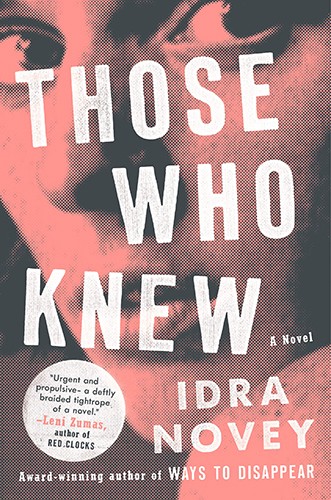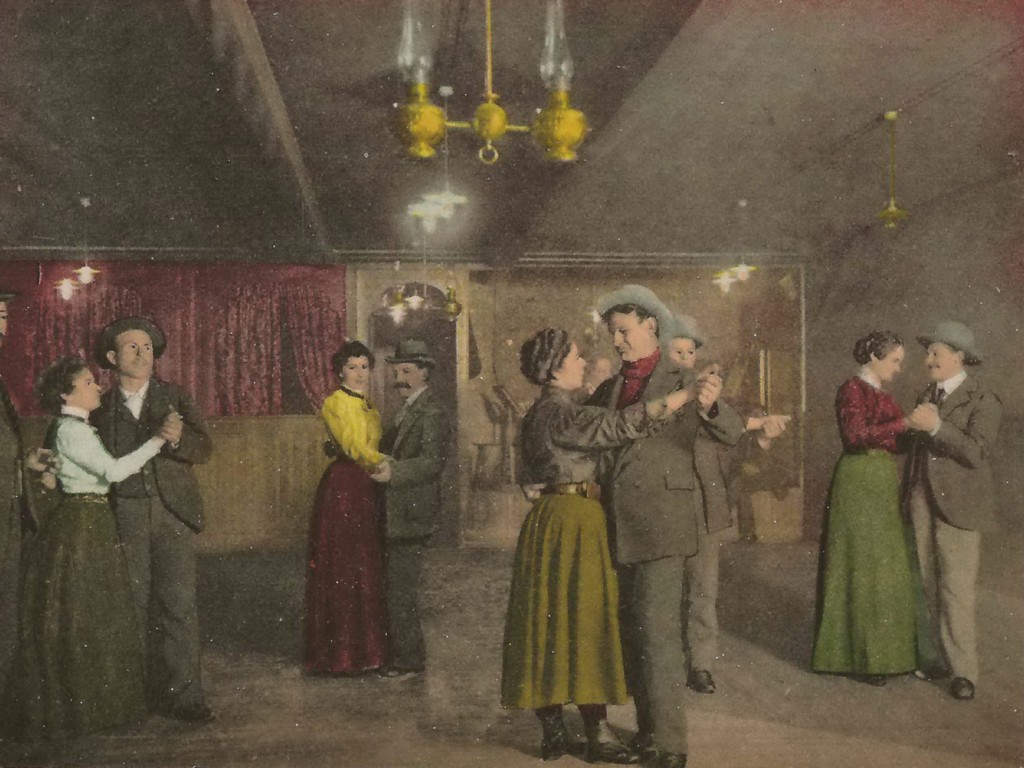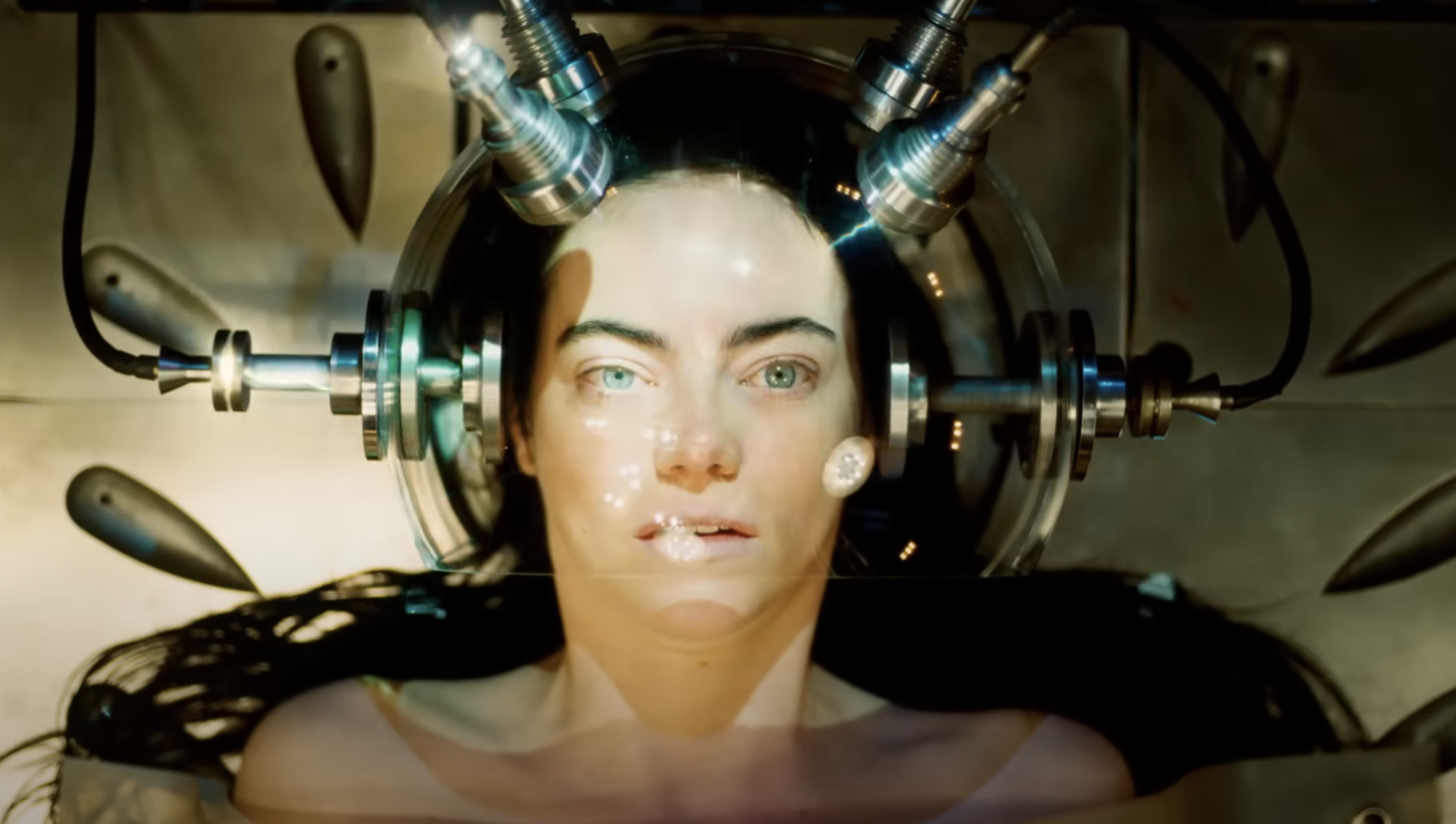Interviews
‘Those Who Knew’ Explores How Silence Helps Powerful Men Get Away with Abuse
Idra Novey on toxic masculinity and how her novel prefigures the Kavanaugh confirmation

Serendipitous is a strange word to use for a book about a series of violent acts committed by a favored senator. But my relationship with Idra Novey’s Those Who Knew did feel serendipitous. Novey and I spoke on October 5th, which is important to note because it was the week after the Brett Kavanaugh hearings. On the morning of Friday October 5th, the Senate confirmed Kavanaugh’s nomination. I was reduced to a series of motions — wipe tears from eyes, hit refresh arrow on twitter browser, text someone “WTF,” repeat ad infinitum. The news felt like too much to bear and yet, I couldn’t look away. I sat alone at my computer. But I knew the loneliness would end in some way, because that afternoon I was going to talk with Idra Novey about a novel she had been working on for four years about an all-too harmonious political event on a fictionalized island involving a powerful senator and a collective of women who knew how much that senator’s political power cost the women around him.

How could one handle reading a book that practically predicts the horrors we are watching unravel right before us? The answer comes in the way Novey has structured the novel around the forces of community and time. Those Who Knew takes place over the course of several years, with flashbacks to several years before, and excerpts from plays and newspaper articles from all the time in between.
What is so refreshing about Novey’s illustration of the way trauma can translate into momentum forward, into hope for change in the future, is the way she offers time as a force for healing. “It takes time” is not a new sentiment, nor is it one that has offered hope in the past, but what Novey does is people this time with deeply human agents for change. There’s Lena, the academic who nearly died at the hands of the senator. Her friend Olga, who mourns the loss of her beloved S and runs a second-hand bookshop, selling the books people dig up from their backyards. And finally there is Cristina, the daughter of a powerful man who marries the powerful senator, Victor. Their knowledge becomes power over time when these women form community. It is in this community, in the everyday exchanges and conversation, that change starts to wedge its way between the moments of sorrow and hopelessness. Novey is careful to illustrate that this hope for change does not mean that the pain of the initial trauma will disappear. Instead, she offers this community of characters who, in sharing their traumas, create a new framework for learning how to endure what they know so that they can create space for what they can imagine will change, and must change.
Serendipity is a rare, bright feeling when the news feels inevitably bleak these days. I was lucky to read this book when I did, and even more fortunate to spend time speaking on the phone with Idra Novey about Those Who Knew, which is a prescient model for how literature creates space for thinking through things we are in the thick of living through.
We spoke about how self-recrimination works to silence knowledge, why we need to separate toxic masculinity from being a male-bodied person, and how change can happen “book by book, conversation by conversation.”

Erin Bartnett: How are you today?
Idra Novey: Well, it’s an intense day. I’ve spent four years burrowing down into a novel about a woman pushed into silence about an assault and watching Dr. Christine Blasey Ford’s testimony was really hard. How about for you?
EB: Yeah, I mean not nearly the same, but the same. I can’t say I’ve been burrowing in the subject in quite the same way, but it’s a hard time.
IN: It’s a really hard time.
EB: Yeah, words are hard to come by.
IN: They are. When I was translating the Brazilian poet Paulo Henriques Britto, I asked him, “What was it like being a college student during the dictatorship in Brazil? How did you get through all the everyday things?” And he said, “Well, you just went on.”
EB: Yeah, there’s this horrible Faulkner quote that haunts me from Light in August where one character is witnessing another character who is about to make, what he deems, a horrible mistake. And he thinks to himself: “Too much happens. That’s it. Man performs, engenders so much more than he can bear or should have to bear. That’s how he finds that he can bear anything. That’s what’s so terrible. That he can bear anything, anything.”
IN: But I think it’s not only the mistake, it’s enduring the mistake that’s so excruciating. Because in the moment of the mistake, you begin to imagine the consequences — what will be endured in the aftermath of that mistake. It’s an agonizing kind of forecasting.
I’ve spent four years burrowing down into a novel about a woman pushed into silence about an assault and watching Dr. Christine Blasey Ford’s testimony was really hard.
EB: My first question is actually about forecasting and spans of time. When I read this book, I was in a moment which I’m sure we all are to some degree, where I felt like I just couldn’t take any more bad news. But your book was something different — the lens you take on acknowledges that life extends, it keeps going for the victims of sexual harassment, assault, and violence. And for me, that sense of time offered some hope for victims, because you get to witness the communities characters like Lena and Olga form to get through their pain. But at the same time, there are no false promises that the pain will go away, or that the haunting feeling associated with knowing what happened will go away.
IN: Thank you, from the start my instinct was that this novel about being pushed into silence would have to cover an extended period of time for exactly the reason you describe, to convey all the ways that the emotional consequences of assault remain in the body. For Lena and Olga, they have to manage those emotional consequences daily, for years.
EB: And this book is coming out in a moment where this issue is a really vital conversation that’s actively being had. How do you hope this book will engage in that conversation and how do you think this book will help us think through and deal with the experience of sexual violence?
IN: I hope readers will find consolation and also a new fuel perhaps in this novel, a renewed desire to create alliances despite the tensions that inevitable surface in any alliance. In the wake of the 2016 election while working on this novel, I felt acutely away of the various ways friends stirred out of their sense of resignation. For some friends, even if they didn’t feel capable of moving beyond resignation on Friday, maybe they’ll feel it on Sunday. Maybe they’ll feel it on Monday. And even if you feel defeated for far longer, as happens in the novel, you have to be open to the possibility that you will be stirred out of that resignation if not for yourself, then for the wellbeing of someone else. Two days from now, three days from now, a year from now. And we have to be in it for the long haul, not just the next twenty-four hours.
Translators as Action Heroes: A Conversation With Idra Novey About Ways to Disappear
EB: To dive into the world of the novel, I was really fascinated by the way you create the “imagined world” in Those Who Knew because there are so many details that felt very close to me — there’s an island post-regime where books were buried and Jewish people were rounded up and now northerners with pale skin come to gawk at the island “post-tragedy,” as if there’s no other way to measure time. There’s even a 9/11-esque tragedy in the North. My experience of reading was uncanny — the island was a very familiar unfamiliar place. So I was wondering, for a novel called Those Who Knew, could you talk more about your process and decision to keep this distance between what the reader can actually know about the country and what they get to infer, create, and imagine?
IN: I think my fantasy for this novel was for readers to come away with some sense of knowing this country. To know it through family or friends, from what they’ve read or where they’ve lived. That is the power of writing a political parable, how it allows readers to bring their own history and knowledge to it. One bookseller told me the novel brought to mind relatives of hers in the Dominican Republic, and another reader told me it led him to revisit the relationship between the US and Iran. And another reader said “I just kept thinking about my family’s history in Haiti.”
I loved that all these early readers brought knowledge of different countries to their experience of the book. As for where I got the title, Gabriel Garcia Marquez has a novel Autumn of the Patriarch and on the second-to-last page comes the line: “We knew who we were, and he was left never knowing.” It was a line that stayed with me, and speaks to the profound ignorance that fuels chauvinism and patriarchy, the profound lack of knowledge of what a man like Trump refuses to know. He doesn’t even know about the toilet paper stuck to his own shoe. It’s a profound and dangerous ignorance, and far more so for people in power.
EB: That just got me thinking about the relationship between knowledge and power in this book. Because for Lena and Olga, there is collective power in what they know about Victor’s behavior and its consequences. And yet, that knowledge has to come up against a different kind of power Victor, the senator, has as a public political figure. And his power threatens to silence their knowledge. So Victor’s political power creates a lot of fear for those who know, too. And so there’s that dynamic alive in the book — both knowledge in power and the power that can threaten to silence that knowledge. And that makes knowledge feel dangerous.
IN: Yes, and the danger of knowledge is why so many battles take place over education, which plays out with Lena and her job with the Ministry of Education in the third section of the book. The end of the regime does not bring meaningful change to the rural center of the island. Victor’s progressive Truth and Justice Party doesn’t deliver on their promises to improve public education, or at least not for the small schools hidden in the interior of the country. I went to a rural public school and Lena’s job gave me a way to write about rural education that I’ve been wanting to write about for a long time — how often politics is a battle over knowledge, and who gets to withhold it from others.
EB: That brings me to one of my favorite characters in this book, Olga. She runs a bookstore filled with books she buys back from people who buried them in their yards during the regime, and then sells them to professors and students and northern tourists. She keeps a transaction log that is actually like a love poem written to her beloved “S” who is gone now. I think she’s the heart of the book in many ways, but also the seat of knowledge, too. How did you find Olga?
IN: I had a very vivid sense of Olga from the first draft. She was a strong presence in my mind throughout — she was company I wanted to keep. Olga is old enough to see the long haul — how lasting change often happens slowly, book by book, and conversation by conversation. The decision for her to run for office came to me in a later draft, as she is the moral center of the book. It was astonishing, after fantasizing about Olga running for public office for many months, to see so many women in this country placing their names on ballots and other women stepping forward as Lena does, to support the campaigns of groundbreaking female candidates like Stacey Abrams in Georgia.
EB: In the opposite direction. I wanted to talk about the decision to write parts of the book from the perspective of Victor, the senator who has committed a series of violent crimes against women. What was it like writing from Victor’s perspective? And why did you decide to do it?
IN: After finishing a novel, it’s possible to construct any number of reasons for inhabiting a character. But I just followed my instinct, as inhabiting Victor’s perspective made me uneasy, and when something makes you uneasy as a writer, you know you have to get past your resistance, and figure out why you’re resisting it. I’ve found the deepest truths, in any genre, usually await in the sections that create the greatest unease for me as a writer. But once I got Victor’s scenes down, I realized how critical they were to the book’s exploration of patriarchy and how a lack of consequences embolden politicians like Victor, how his continued popularity allowed him to minimize his crimes in his mind — to believe he deserved to get away with whatever crime would permit him to remain in power.
EB: That actually reminds me of a quote from Olga when she writes in her transcription log “I’ll never say it to Lena, but if Victor did push that girl he’s going to get away with it. The road was empty. There were no witnesses. Maybe Che Guevara disposed of some inconvenient girl like a soda can as well. Maybe he disposed of several. Who wants to hear it? People are too desperate for a hero.” That statement “people are too desperate for a hero” really haunts me. Because there is both Victor’s internal justification and the seeming lack of real consequences for his behavior because the public reveres him for so long as a political warrior for the people. So I wanted to ask you more about that statement — do you agree with that sentiment? Are we too desperate for a hero? And do you think that’s something we need to be wary of?
IN: With all the fake news spewing forth each day, it’s become easy to cling to whatever version of a candidate a voter might want to believe in. The narratives are all there online for the taking, and Olga sees that the students who worship Victor don’t want to deal with the cognitive dissonance of recognizing he has fought alongside the, yes, but is also complicit in an out-of-control lake full of pig shit.
To go against the tide of people desperately clinging to a false narrative takes incredible strength. Look at Christine Blasey Ford. She saw how strong the tide was, how likely she would be terrorized and unable to live in her own house, and she was right.
With all the fake news spewing forth each day, it’s become easy to cling to whatever version of a candidate a voter might want to believe in.
EB: It brings me to this other point that I saw for a lot of the characters — mostly women, but also Freddy and Oscar, too — there’s this incredible sense of self-recrimination and blame. This quote from Lena’s perspective I so identify with: “She had thought there would come a point in her life when there would be fewer hours like this, of self-recrimination so wrenching and overwhelming it felt as if she were devouring herself, wordlessly slicing up her soul just to stuff it back in her own mouth.” This line comes after Lena hates on herself for forgetting to refill her granola bar stash in her car! But Lena also blames herself for Maria P.’s death, and her “silence” about Victor’s violence. Freddy, Victor’s brother, feels the same guilt for his silence, but also about his relationship with his brother and father more generally. Olga has similar feelings about S’s death — which she blames herself for. Cristina and Lena both feel guilty for taking money from their families. There is so much guilt. And that guilt threatens to silence them, to destroy them in some way. Do you think that’s part of that tide we’re talking about?
IN: Absolutely. I kept coming back to Lena’s paralyzing sense of self-recrimination, and the kinds of self-recrimination I felt after the 2016 election, and for a million reasons before that. Once you internalize the mechanism of self-recrimination, it can take over your life. Lena comes to trust her impulse to self-recriminate more than any other aspect of herself. How do you let go of self-imposed shame that paralyzing? For Lena, it takes years.
EB: And time is something we so often don’t acknowledge as a legitimate mechanism for tuning our ears to other voices in our heads. There’s the agony of having to endure that time, but also the permission we need to take that time. We are allowed to take time.
IN: Yes, and that is something fiction conveys, the role time plays in a person’s ability to rise out of a place of resignation and despair. Even if you can’t stir yourself out of a cynical mindset this second, it doesn’t mean that you won’t. Freddy has to write his way through a number of scenes about complicity and inaction before he can work up the nerve to confront his brother.
EB: To return to Freddy — It was so refreshing to read how carefully you constructed the critique of the violence of the patriarchy and toxic masculinity in a way that acknowledges how these power structures ruin men like Freddy. And even Oscar. Because the patriarchy also destroys the relationships between men. There’s a father in Freddy’s play who tells a young Freddy not to cry. To “keep it in, find a spot on the wall. Like a senator. Fix your gaze on it. You want to be a man, right?” Can you talk more about that?
IN: I didn’t set out to write a novel about patriarchy. Although one of the first scenes I imagined for it was of a father warning his son to stop crying and keep his face as expressionless as as a senator. And one day that boy becomes a senator who doesn’t allow himself to cry. I was curious how those premonitions that play out in the living room as a child end up playing out in a national arena, in the theatre of our national politics. There’s nothing wrong with being a male bodied human being. We just need to raise male-bodied children to know we value their capacity for kindness and compassion more than their capacity to compete and defeat others. In many ways, I saw this novel as ultimately about having a son, and the desire to free him from a legacy of emotional repression.
We just need to raise male-bodied children to know we value their capacity for kindness and compassion more than their capacity to compete and defeat others.
EB: I’m reading bell hooks — have you read her book The Will to Change?
IN: Yes, in college. I love that book.
EB: So I’m just discovering it for the first time. And it’s been really helpful in some ways, because I have three brothers, I have a partner who is a man, and it’s a very confusing time because I love them all so dearly. And bell hooks is starting to give me language for thinking though the differences between the patriarchy, masculinity, and the male body. Because these things so often get thrown together. What is the difference between the patriarchy, toxic masculinity, and being a male body? And how do we create this for our young boys?
IN: Exactly, we so often conflate the male body with toxic forms of masculinity and they’re not the same thing. Just like we separate the female body from conversations about femininity, it’s important to make that distinction for male bodies as well. Perpetuating toxic masculinity is not inevitable. It felt crucial for this novel about patriarchy to have several male characters who are agents of change. Oscar reflects in the novel on how self-absorbed and absent his father was during his childhood. Oscar stays home with his daughter as a way to prove to himself that he’s a different kind of man.
EB: As a last question, I want to return to something you said earlier about the fact that Olga recognizes that change happens book by book, conversation by conversation. Is there a book that you’ve read recently that gave you that hope, that reminded you that this change can happen book by book, conversation by conversation?
IN: I would recommend June Jordan’s book of essays, Some of Us Did Not Die and especially the essay “Can We Get a Witness” about Anita Hill and that trial. And as a chaser, look up June Jordan’s poem “Poem About My Rights” from 1980. Every line of which, remains true.










